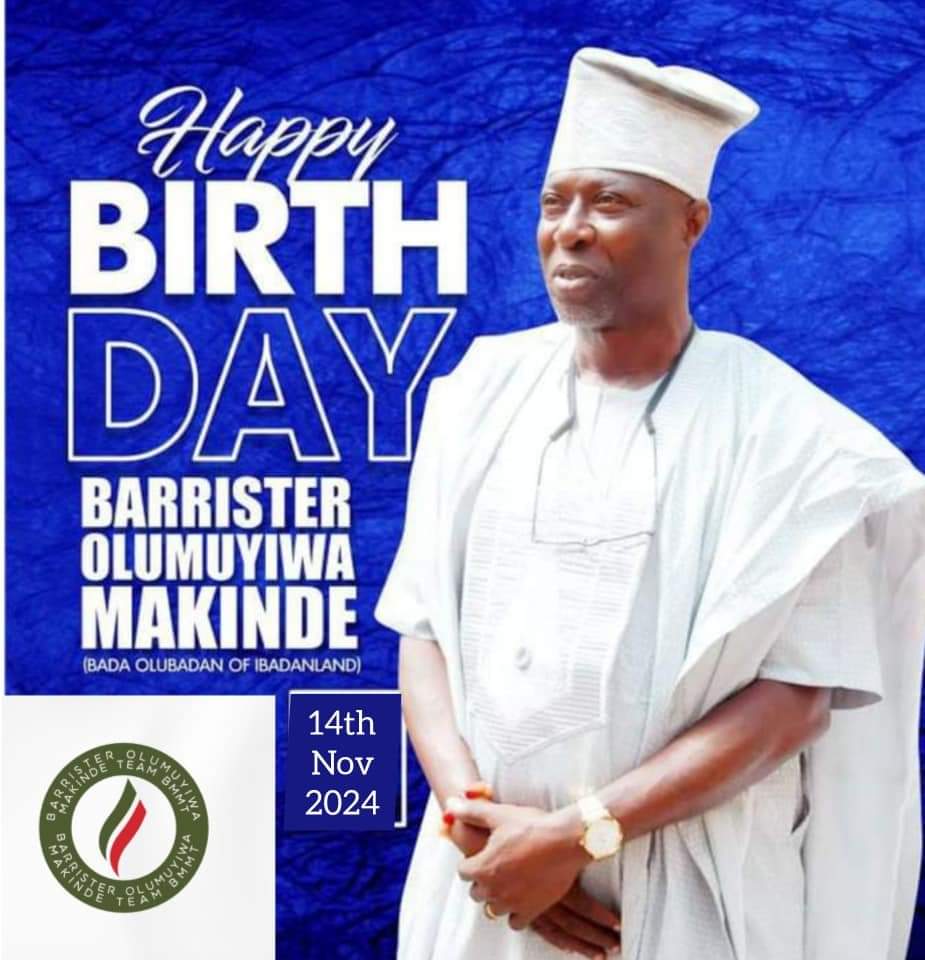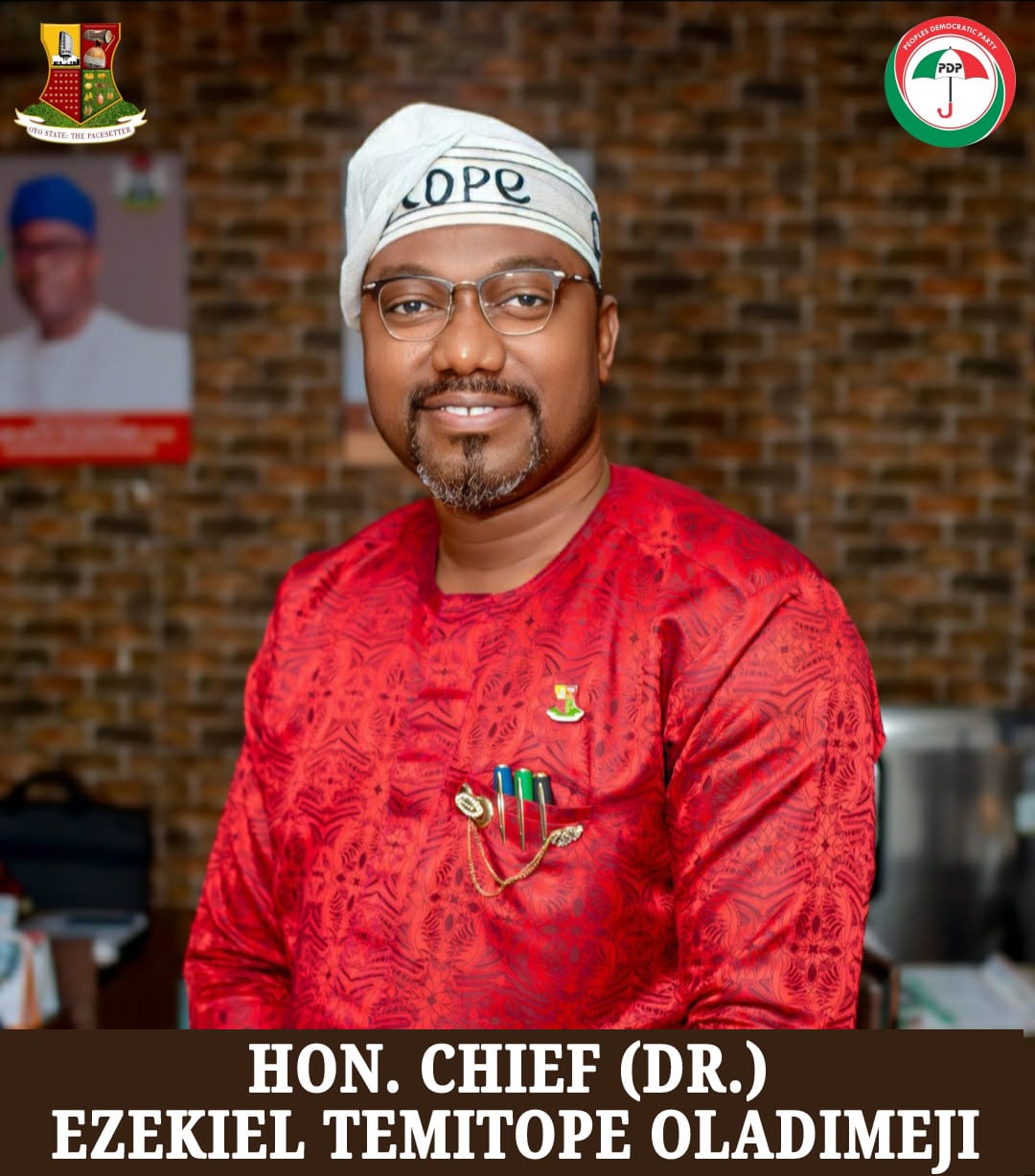Jericho Businessmen Club To Partner Oyo Govt, Relevant Stakeholders For Economic Prosperity, Poverty Alleviation
Jericho Businessmen Club (JBC), on Friday, held its first Annual Socio-Economic Summit with a focus on agricultural transformation in the state through value chain integration for sustainable development.
The event, which brought together a galaxy of policymakers, captains of industries, industry stakeholders, agricultural practitioners, businessmen and professionals of varied disciplines, like Minister of Power, Chief Bayo Adelabu among others in collaboration with other private sector operators, NGOs and experts under the same roof, was held at the Civic Centre, Idi- Ape, Ibadan.

Different speakers took turns to present papers underscoring the critical role of agriculture, not only in ensuring nutrition and food security but also serving as a cornerstone for industrialization and economic development.

In his opening remarks, President of the Club and Jagun Balogun of Ibadanland, Chief Remi Ibrahim Babalola, expressed that the vision of the Club is to be the club of first choice for Ibadan sons committed to transforming Ibadan and Oyo State into the epitome of development in Nigeria.

He added that the summit was in line with the club’s strategic focus to support the government in enhancing the economic prosperity and advancement of the State.
He maintained further that the event, being the club’s maiden edition, centered on relevant socio-economic issues that would lead to better living conditions for the people.
“In order to ensure the sustainability of this Summit, we have put machinery in motion to host it on an annual basis.
Therefore, I implore you all to please block every third week of November in your calendar for The JBC Annual Socio-Economic Summit right here in Ibadan,” he said.
Chairman of the Planning Committee, Adekunle Afolabi, FCA, MBA, during his welcome remarks, noted that the cardinal objective of the club, as enshrined in its constitution, is to, through advocacy and events, make input into the socio-economic policy and programmes of the various tiers of government.
“We seek to be a preferred source of credible and non-partisan public policy advice to the Government of Oyo State and to act as a platform for channeling the impressive intellectual, social, and financial capital of our members and our vast network of local and international business associates, professional colleagues, friends, and well-wishers towards this objective.
Afolabi noted further that the summit will be institutionalized as an annual event, picking a topical theme each year based on a data-driven assessment of relevance, urgency, and impact on the socio-economic development of Oyo State.
He added that consequent themes will include Education, Health, Youth Unemployment, Information Technology, Security Law and Order, Infrastructure, Water and Sanitation, Traffic Management, IGR and Good Governance.
Representing the Oyo State governor, Executive Adviser on Agribusiness Matters, Dr Debo Akande, extensively spoke on the topic ‘Agricultural industrial transformation in Oyo State’, explaining the need for the state to have a different approach to agriculture as against what has been in practice for many years.
“The small-holder farmers should not continue to be poor. I can tell you that we are sitting on a goldmine but cannot continue this way. We have the land, the people that can do it but we have to change the strategy.
“There is a need to attack the structural probe of Agriculture. The agriculture we are doing in the state now is based on science, data and logic and we will continue on that trajectory,” Akande stated.
During her keynote address, Mrs. Yemisi Iranloye, the Founder/Managing Director, of Psaltry International Limited, Iseyin, Oyo State, who spoke on ‘Driving Agricultural Transformation through inclusive agricultural value chain and sustainable development’, emphasized the need for, saying inclusive agricultural value chain is the way to go.
She lamented that despite playing a pivotal role in producing a significant portion of the world’s food supply, smallholder farmers still face some challenges, ranging from financial constraints, unreliable extension services, and limited collateral, which are practically depriving more youths of coming into agriculture.
She said: “Inclusive agricultural value chain is just the way to go. There is a need to apply an inclusive model method, encouraging the smallholder farmers to sustain a livelihood to take the country to the next level.
“Everyone involved in the process should receive energy from one another to make things work. The government, at all levels, should make provision for the latest technology for the farmers.
“Government must find a way to put their case on the front burner. There must be access to finance, extension service to ensure farmers move from subsistence to commercial farming.”
Also speaking at the event, the Senior Special Assistant on Industrialisation to the African Development Bank President, Professor Oyebanji Oyelaran,
In his keynote speech, entitled ‘Agricultural Transformation in Oyo State’, he expressed that agribusiness value chain is important to end extreme poverty, boost shared prosperity and feed the citizens, adding that it will promote export diversification.
He called for the need for profound changes in the economic structure from agrarian to modern industrialized agriculture-manufacturing sector, which is defined by higher wage rates, higher marginal productivity, demand for more industrial workers and a capital-intensive production process.
“Technology will close the productivity gap. Agriculture employs 35 percent of the population, which is terribly bad, compared to Ethiopia with 65 and other African countries.
He, however, appealed to the Club to work with the state government in ensuring that each local government in the state is allocated at least 500 to 1,000 hectares of land for farming, saying that by so doing, poverty will become a thing of the past in Nigeria before the year 2030.

